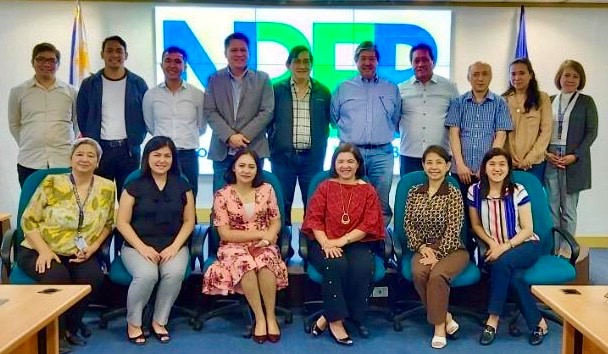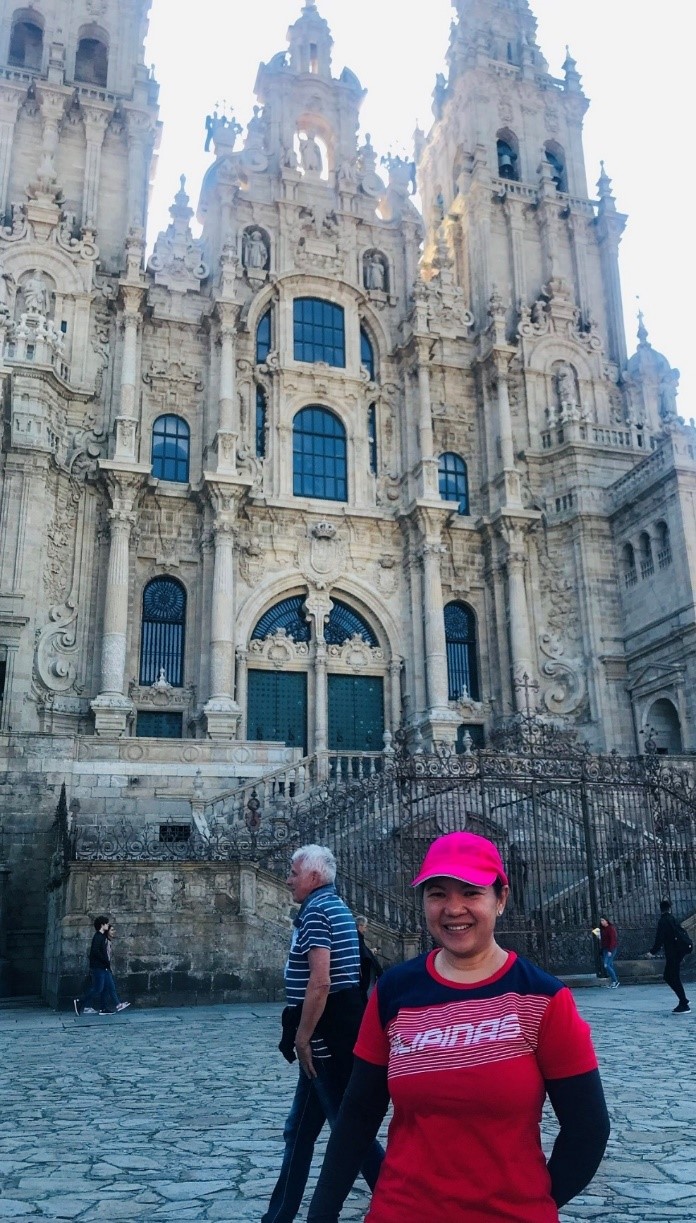Economies usually stomp on renewable energy initiatives in its march to progress. There are two reasons why fossil fuels are usually preferred in developing countries such as Indonesia, Vietnam, Philippines and Malaysia. In some of these countries, it is still the abundant and affordable resource, and, two, the growth of renewable energy just cannot keep up with expanding economies, say the World Economic Forum and the International Energy Agency. It takes real effort to make certain the country’s energy strategy include sustainable resources.
No one knows that better than Senior Fellow Monalisa Dimalanta (Mona). As Chairperson of the National Renewable Energy Board (NREB) Philippines, Mona works with heads of government agencies as well as leaders in private enterprises to implement programmes under the law and ensure the country’s renewable energy goals are met. The 15-member multi-stakeholder board also recommends policies to the sitting government as part of the Renewable Energy Act of the Philippines. As you can imagine, this is an arduous task. Mona has to reconcile and address independent mandates from various agencies and manage the interests of stakeholders, so a balanced view is achieved. Even the simplest act of finding a common time to meet can be a complex affair.

Monalisa (front row, third from right) is the Chairperson of National Renewable Energy Board (NREB) Philippines.
It helps that Mona has two decades of experience in the energy industry, most of it in leading the Energy Practice Group at Puyat, Jacinto and Santos (PJS) Law. She is currently a senior partner at the law firm.
[ALUMNI-INFO TEXT="Her work experience and gleaned wisdom from working on the ground to draft contracts and represent parties in court has led to an intimate understanding of where and how real-life situations fit—or not—in the legal paradigm. Coming from the other side of the court, she also knows how the law provides (or not) solutions for issues or disagreements. It is this skill in navigating the policy and legal paradigm, and identifying, crafting and proposing solutions that she finds most useful in her role as chairperson of the national board, Mona revealed.
While the goals at PJS and NREB are similar – to get the Philippines to adopt a more sustainable energy programme – her role at NREB is government mandated. This gives her a prime seat to contribute to the country’s clean energy objectives. She is mindful, however, that she is not just a seat-warmer but actively brings something worthwhile to the table.
So when Mona was invited to join the Lee Kuan Yew Senior Fellowship in Public Service (SPFS), she jumped at the chance. “It has always been a dream to go to the Lee Kuan Yew School of Public Policy (LKYSPP). I have always looked up to and read a lot about (Singapore’s prominent former Prime Minister) Mr Lee Kuan Yew and his leadership. So, when the opportunity came, I knew I had to at least try to get into the programme,” she said. The SPFS programme is tailored to senior leaders in government, non-profit and private organisations. Its participants will likely hold positions within three levels from their organisation’s highest ranking officer."][/ALUMNI-INFO]
[ALUMNI-QUOTES TEXT="Due to Covid-19, the six-week programme is split into two terms. As the second batch of SPFS, Mona has attended the first session which was conducted online in 2020 and will start her second stint in March, 2021—where she will attend classes on campus if travel restrictions permit.
While she has learned much about Singapore’s governance from the course, she says the biggest takeaway has been the importance of civil service in governance. “Many times, and in many countries, the role of the civil service is easily overlooked or overshadowed by the high-profile dynamics of politics. Our discussions in class on Singapore's civil service system and the philosophy behind it really opened my eyes to the great potential that we have yet to fully unlock in the Philippines if we want to further improve, properly recognise and capacitate our civil service,” she explained.
Renewable energy has a deeper significance for the Philippines than just an energy source, confided Mona. As a country located along the Pacific ring of fire, it has abundant and varied natural energy resources such as hydropower, solar, wind as well as from the ocean and biomass. In fact, the country’s power has been based on clean energy for more than 60 years, she added. Its geography, however, is a double-edged sword as it places the Philippines in the path of the devastating effects of climate change such as rising sea levels, increasing temperatures and extreme rainfall. “As we pursue renewable energy development for our own needs, we also need to push others to use it for our own survival,” revealed Mona."][/ALUMNI-QUOTES]
Everyone has a part to play in pushing for clean energy, added Mona, from states to cities and corporate stakeholders—and it goes all the way down to individuals. “In the long run, it is about changing the way we live. Governments and corporations can decide on a new energy infrastructure that only uses renewable energy but we have to embrace that change.”
When Mona is not wearing her clean energy hat, she heads Unawa, a regulatory tech (regtech) startup that aims to make legal solutions accessible to micro, small, medium enterprises (MSME) through technology. She also carves time out with her 12-year-old and five-year-old daughters.
One of her recent achievements as a Catholic was to complete the Camino de Santiago pilgrimage where she hiked 200 kilometres from Pamplona to the Santiago de Compostela cathedral in Galicia, Spain where the Apostle St James is believed to have been buried.

In May 2019, Monalisa was in Spain for a Catholic pilgrimage called Camino de Santiago de Compostela. This cathedral is where the pilgrimage ended.
“We have to decide how we choose to travel, how we work, how we educate future generations, how we get our food sources, what we buy, and which businesses to put our money in – choose the ones with green initiatives for packaging. We have a sneak peek now with COVID-19 and the effects of lockdown. We have been given the unique opportunity to truly reset.”